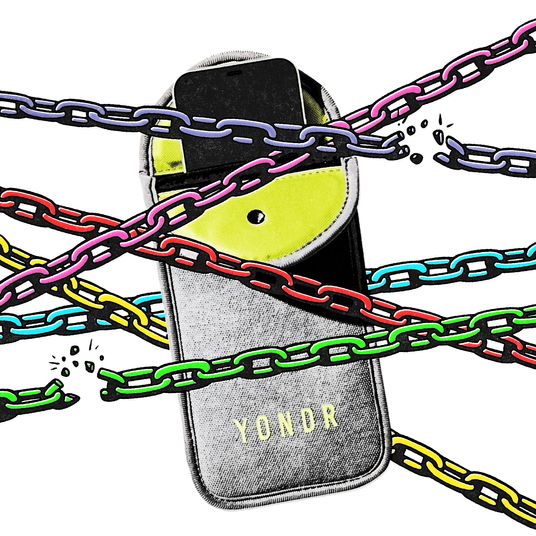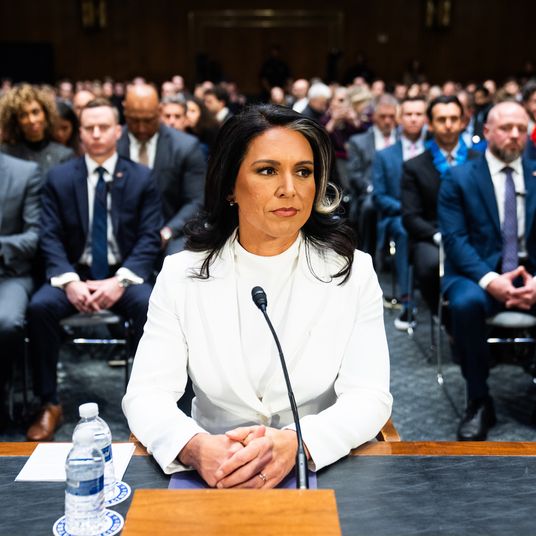
Television journalist Mike Wallace died Saturday at a care facility in New Canaan, Connecticut. The cause of death was not announced, though, according to the Times, he had a history of heart trouble. He was 93.
Wallace, who got his start as an actor, cigarette pitchman, and game show host, spent the bulk of his career as the star of CBS’s 60 Minutes. As one of the show’s first co-hosts (he initially shared duties with the gentler Harry Reasoner), he perfected an aggressive, performative interview style, which he used on a very long list of celebrities, politicians, scam artists, criminals, and other newsmakers. In a 2006 interview, he described his work as “a fine line between sadism and intellectual curiosity.” (Particularly nasty questions were frequently preceded with the phrase “forgive me.”)
He is credited with introducing the “ambush” interview (politely defined by the Washington Post as “a technique intended to shock its targets into spilling information they might not in a scheduled interview”) to television news:
Mr. Wallace himself was once asked on “60 Minutes” if he’d worry about someone barging into his office and confronting him with what appeared to be bombshell evidence.
“I wouldn’t,” joked the four-time married Wallace, “which is why I lead a life beyond reproach.”
Wallace later moved away from the tactic, saying that it “provided drama but not much good information.” However, he continued to take a bold approach when it came to asking questions:
When he sat down with the Ayatollah Khomeini, the Iranian leader, in 1979, he said that President Anwar Sadat of Egypt “calls you, Imam — forgive me, his words, not mine — a lunatic.” The translator blanched, but the Ayatollah responded, calmly calling Sadat a heretic.
In another well-known episode, he caused Barbara Streisand to burst into tears after calling her “self-absorbed” in her youth and asking her “What [her psychoanalyst was] trying to find out that takes 20 years?” (Streisand’s response: “I’m a slow learner.”) Sometimes, he dispensed with questions altogether:
“Perjury,” he said, in his staccato style, to President Richard M. Nixon’s right-hand man, John D. Ehrlichman, while interviewing him during the Watergate affair. “Plans to audit tax returns for political retaliation. Theft of psychiatric records. Spying by undercover agents. Conspiracy to obstruct justice. All of this by the law-and-order administration of Richard Nixon.”
Mr. Ehrlichman paused and said, “Is there a question in there somewhere?”
No, Mr. Wallace later conceded. But it was riveting television.
Wallace’s work on the Watergate scandal earned him a role in the stage version of Frost/Nixon. He was portrayed less flatteringly by Christopher Plummer in 1999’s The Insider, in which he came off as “a corporate lackey who didn’t use his authority to stand up for journalistic integrity.” Unsurprisingly, Wallace wasn’t pleased by the movie, which focused on CBS’s censorship of a tobacco industry whistleblower: “Mr. Wallace denounced the film, and CBS News President Andrew Heyward said Mr. Wallace was ‘vociferous and public in his campaign and in his criticism of his own corporate bosses.’” (His attitude toward the project softened when it was nominated for five Oscars.)
In the mid eighties, Wallace became depressed and attempted to commit suicide, partially over a $120 million libel suit brought against CBS by General William Westmoreland, who Wallace accused of deliberately underestimating the number of enemy troops in Vietnam. The issue was eventually settled out of court, and Wallace used the experience as an opportunity to begin speaking out against the stigmas associated with mental illness.
Wallace stepped down from his regular role at 60 Minutes in 2006, though he occasionally returned to the show to do interviews with especially notable subjects, like Dr. Kevorkian, Mahmoud Ahmadinejad, and Roger Clemens, whom he spoke to in the wake of his steroid scandal. He retired for real in 2008, explaining that he’d always intended to quit “when my toes turn up” and “they’re just beginning to curl a trifle. … It’s become apparent to me that my eyes and ears, among other appurtenances, aren’t quite what they used to be.” He often told interviewers he wanted his epitaph to read, “Tough But Fair.”





























